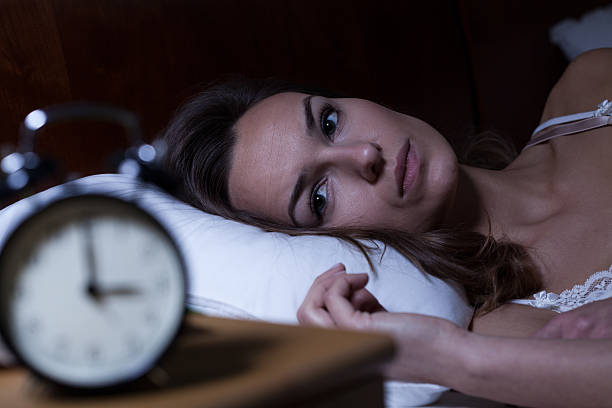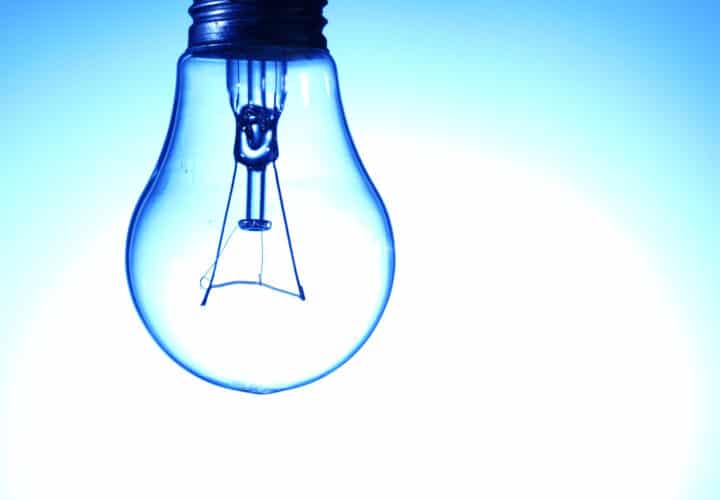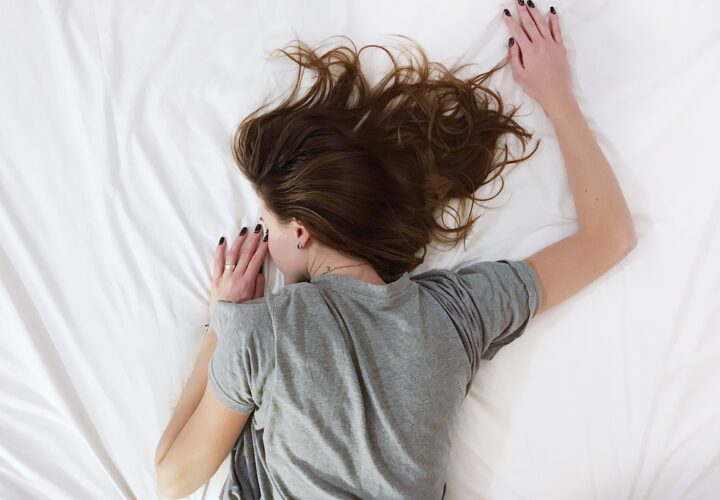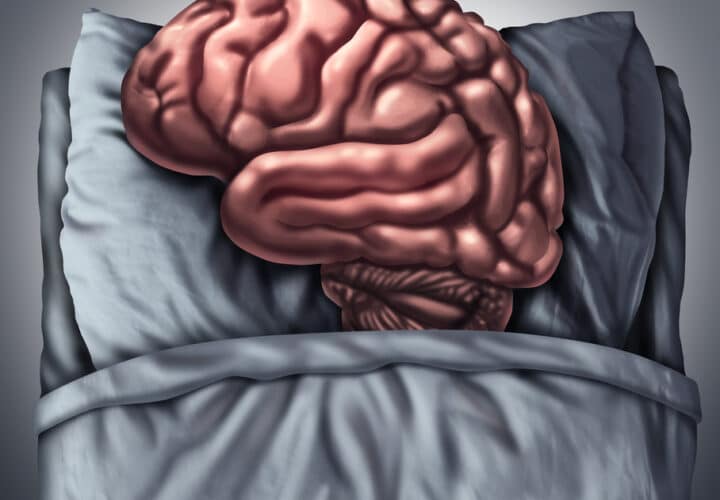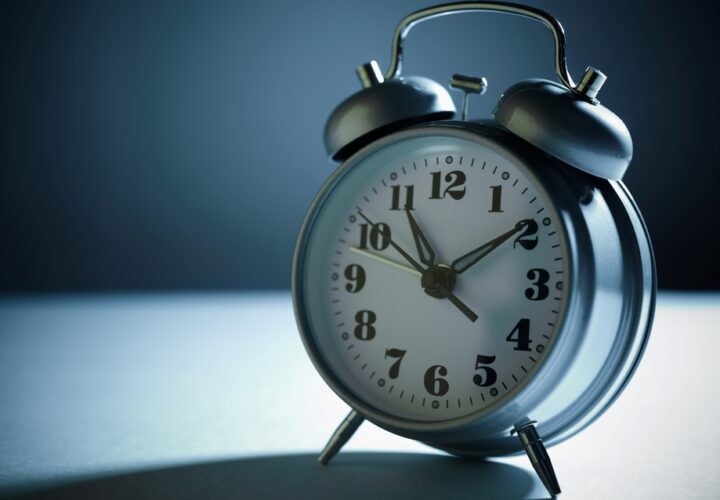Discover whether sleep medications could increase dementia risk and what someone who cannot get a good night's sleep should do to improve their insomnia.
Between 50 and 70 million Americans live with a sleep disorder. While getting a bad night’s sleep has been linked to an increased dementia risk, researchers have also been turning their attention to whether sleep aids like Seroquel, TYLENOL PM, Benadryl (off-label) and Doxepin could raise your chances of developing dementia. At the recent Alzheimer’s Association Conference, researchers revealed new findings on the impact of sleep medications on dementia risk.
Sleep Medications Affect Certain Races Differently
Researchers at the University of California, San Francisco studied white and African American adults between ages 70–79 who were not living with dementia at the start of the study. The researchers followed participants for 15 years and found that participants who said they took sleep medications “often” or “almost always” were more likely to develop dementia than those who said they “never” or “rarely” took sleep medications. However, the team only found an increased dementia risk among white males who commonly took sleep medications.
“Based on our findings, we recommend that clinicians make more effort to be aware of their patients’ sleep problems including use of sleep aids,” said lead study author Yue Leng, PhD, University of California, San Francisco. “In particular, clinicians may need to be more cautious about prescribing sleep medications to older adults who are at high risk for dementia. There are non-pharmacological sleep treatment options that should be considered.”
Do Sleep Medications Impact Women and Men Differently?
The Cache County Study on Memory and Aging (CCSMA) looked at whether taking sleep medications led to an increased Alzheimer’s risk and if men and women are impacted differently.
In an observational study of 3,656 adults over age 65, researchers found that men who used sleep medications had a 3.6 times increased risk of getting Alzheimer’s than those who didn’t. In contrast, women who used sleep medications but did not suffer from sleep disturbances had a four times greater risk of getting Alzheimer’s, compared to women who had sleep disturbances and used sleep medications. These women had a 35.2% reduced risk of developing Alzheimer’s.
“More research is needed to determine and understand the mechanisms underlying the differences between men and women, and the cognitive impact of using sleep medications,” said Elizabeth Vernon, MS, Utah State University, who presented the data at AAIC 2019.
What Should Someone Who Cannot Sleep Do to Protect Their Brain Health?
If limited sleep may cause dementia and taking sleep medications could increase dementia risk, what should someone who has difficulty sleeping do if they want to protect their brain health?
Dr. Chad Yucus, a neurologist at NorthShore University HealthSystem, said he would not recommend using sleep aids like Tylenol PM or Benadryl because they may cause increased confusion.
Similarly, Doxepin, an antidepressant, has been shown to improve sleep quality in some studies, while others have reported drowsiness and weight gain as side effects, which have both been found to increase dementia risk.
Seroquel is often used to treat conditions like schizophrenia, bipolar I disorder and severe depression. While some studies have found Seroquel may improve sleep quality, reported side effects actually include difficulty sleeping, as well as weight gain, which is often linked to an increased dementia risk. Seroquel is an antipsychotic drug and researchers found some safety concerns about using it to treat insomnia. Instead, they suggest it should be prescribed for more serious conditions like schizophrenia and bipolar disorder.
Daniel Gartenberg, PhD said that many sleep medications even act as placebos. It is also important to weigh the risks of the drug. Therefore, you have to weigh if the placebo effect of the drug outweighs addressing insomnia enough such that the cost of the drug is worth it. For example, if the medication that one takes increases sleep by an hour it may be worth taking the drug vs. if it only increases sleep by 10 minutes.
The side effects of some sleep drugs may become even more pronounced in dementia patients, depending on the severity of their condition.
What Causes Insomnia?
There are many reasons why someone may not be able to fall asleep or stay asleep, including stress, poor sleeping patterns or mental health issues. But being unable to sleep causes a weak immune system, increases your risk of developing cardiovascular diseases and can affect body weight or hormone production, factors that have all been associated with an increased dementia risk.
Chronic insomnia can be caused by eating too much or consuming nicotine or alcohol right before bed, stress, poor sleeping habits, mental health disorders, medications like antidepressants or allergy medications, medical conditions, changes in activity and changes in health, according to the Mayo Clinic.
How Can You Get a Good Night’s Rest Without Relying on Sleep Medication?
Treatment for the inability to sleep varies depending on the person and the severity. Due to this, experts suggest trying non-drug methods first because some drug options can be dangerous and cause side effects.
Gartenberg recommends cognitive behavioral therapy (CBT) to improve insomnia. CBT is a therapy technique that can help people find new ways to behave by changing their thought or behavioral patterns. CBT gets to the root causes of insomnia and is not a band-aid approach like other drugs can be.
Gartenberg said that there are 5 major aspects to CBT:
- Sleep Hygiene which is sleeping in a friendly environment with soft music or white noise, air-conditioners, a comfortable mattress and a dark room. Do not go to sleep angry because this will cause a restless sleep.
- Stimulus Control advises individuals to only get in bed for sleep and avoid stimulating activities right before sleeping such as watching television or using the computer, and avoid bright lights in the evening
- Relaxation and Meditation includes listening to soothing sounds, having a pre-sleep routine like putting pajamas on and brushing your teeth, and letting go of tensions from the day
- Cognitive Training is thinking differently about your sleep to master dysfunctional thoughts that can negatively impact sleep quality
- Sleep Restriction requires an individual to push back their bedtime so that they are more tired when they go to bed. The extra amount of time that an individual waits to go to bed is dependent on the amount of sleep they get when they go to sleep at their normal time.
Yucus suggests additional CBT methods such as:
- Go to bed and wake up at the same time every day
- Sleep for 6–8 hours each day to reduce the buildup of amyloid plaques, a toxic protein that is often found in people living with Alzheimer’s brains
- Do not go to bed until you are sleepy
- Try to relax at least 30 minutes prior to bedtime by reading, listening to soothing music, or even meditating, and keep your room free of distractions
- Avoid eating meals and drinking water or alcohol for at least 2–3 hours prior to bedtime
- Try not to nap during the day or early evening
- Do not stay in bed for more than 20–30 minutes if you cannot fall asleep
- Exercise during the day
If natural methods aren’t working and all options have been exhausted, people can choose to use less risky over-the-counter drugs in moderation.
According to Yucus and Gartenberg, if other options aren’t helping, people can try using melatonin. Melatonin is an oral medication that aids the sleep-wake cycle. Recent research is also exploring whether melatonin might improve cognitive impairment in people with Alzheimer’s disease and prevent cell damage associated with amyotrophic lateral sclerosis (ALS).
“In general, I find that patients who have dementia may do well with melatonin. Everybody’s usually familiar with melatonin. We don’t need large doses, which I think is a misconception. Anything from 1–3 milligrams can be helpful to sleep,” Smita Patel, D.O., a neurology, integrative medicine and sleep disorders specialist at NorthShore University HealthSystem’s Neurological Institute said.
Trazodone is an older weak anti-depressant that is mildly sedating. It works by helping to restore the balance of serotonin in the brain. A small study found that trazodone improved sleep in Alzheimer’s patients.
Researchers are continuing to study whether cannabis may help people sleep. Some studies have found that cannabidiol (CBD) could help treat insomnia, while THC could help people get a better night’s sleep initially, but may affect sleep quality in the future. In addition, a recent study found that cannabis helps reduce the time it takes to fall asleep. Gartenberg suggests that cannabis negatively impacts sleep quality as it reduces REM (Rapid Eye Movement) sleep. However, if an individual is extremely anxious and cannabis helps and makes them sleep two hours more, than this outweighs the negative impact on REM. Therefore, it depends on the individual. It is important to make the distinction between CBD and cannabis as CBD does not seem to have the same negative affect on REM as it is not the psychoactive substance in cannabis. In addition, synthetic cannabinoids like nabilone and dronabinol have been shown to have a short-term benefit for treating sleep apnea.
While it cannot yet be determined whether cannabis can help those with insomnia, patients have reported it has helped them treat pain associated with conditions like restless leg syndrome. Studies have even found that the cannabinoids in marijuana were able to block the age related plaque build-up of beta amyloid. Before using cannabis for insomnia, experts suggest users seek professional help to determine what to use.
A lack of sleep can often have a harmful impact on the body and brain. Certain pharmaceutical drugs such as Tylenol PM and Benadryl (off-label) may be an easy choice for those who want to treat their insomnia, but the drugs are not necessarily better for long-term health. Instead, there are safe alternatives to getting more sleep such as exercising during the day, avoiding electronics before bed and steering clear of midnight snacks. If all else fails, ingesting melatonin or trazodone is approved but in small and controlled amounts. However, you should speak to a medical professional before considering additional suggestions.
